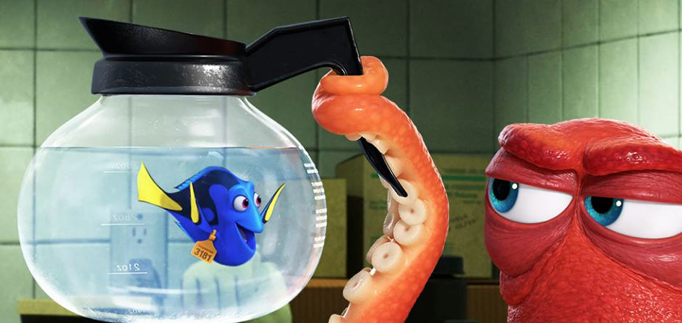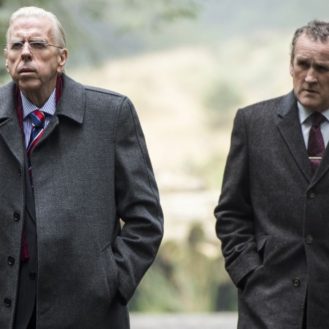Only Pixar could find a way to reevaluate quirky comic relief as a poignant study on mental and physical disabilities. Academy Award winning writer/director Andrew Stanton (Finding Nemo, WALL·E) along with co-director/writer Angus MacLane (in her feature-length debut after developing her filmmaking through Toy Story short films) have developed a faithful sequel while also identifying a message that has been treaded cautiously in the past.
In Finding Nemo, comedienne Ellen DeGeneres voiced Dory, an easily distracted blue tang fish. While an acquired taste for some movie goers, Dory and her imagination played a big role in the predecessor’s story of a clownfish (Marlin, voiced by Albert Brooks) searching for his lost son Nemo (Alexander Gould, who has since grown up and been replaced by Hayden Rolence).
Finding Dory acts as a swift prequel. The audience is acquainted with a young Dory (Sloane Murray, who will melt your heart multiple times) and her parents (Dianne Keaton, Eugene Levy), and we’re given vague information as to how Dory lost her way. After a quick refresher, Dory’s short-term memory is electrified by a spurt from the past. Some trigger words cause her to haphazardly hatch a plan, and immediately round up Marlin and Nemo for another adventure to search for her mom and dad.
Andrew Stanton and Angus MacLane (along with co-screenwriters Victoria Strouse and Bob Peterson) are natural professionals when telling a story through illuminated visuals and clever dialogue – these pieces lead towards the film’s grand goal and other puzzle-like missions which will entertain audiences of all ages. Memorable nods from the first outing return with surprising freshness (including a brief run-in with travelling turtle Crush), and new characters fill out supporting roles with humour and innocent sensitivity (including an insecure beluga, a near-sighted whale, and a septapus who is trying to swallow up his own bottled-up anxiety).
Finding Dory is exciting throughout, but its subtext is where the film truly shines. The filmmakers tackle the insecurities and handicaps head-on without resorting to pretentious double-meanings. Even the septapus (voiced brilliantly by Modern Family’s Ed O’Neill) provides enough background for movie goers to recognize the character on a broad scale. Children learn about self-control and tolerance towards peers, while parents are reminded of how helpful it is to give others the benefit of a doubt.
Finding Dory is just as important and perfect with handling its own story as last year’s Inside Out was towards mental health. Pixar, who has evolved so much in the past, shows that its still possible for them to outdo themselves.
**********
Do You Tweet? Follow These Tweeple:
Addison Wylie: @AddisonWylie




Leave a comment